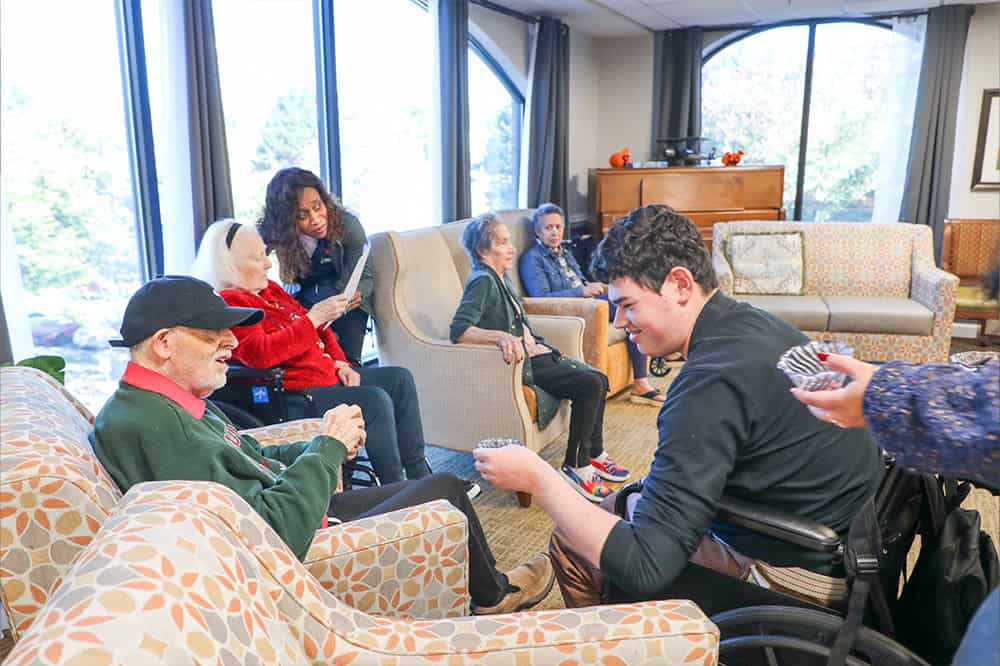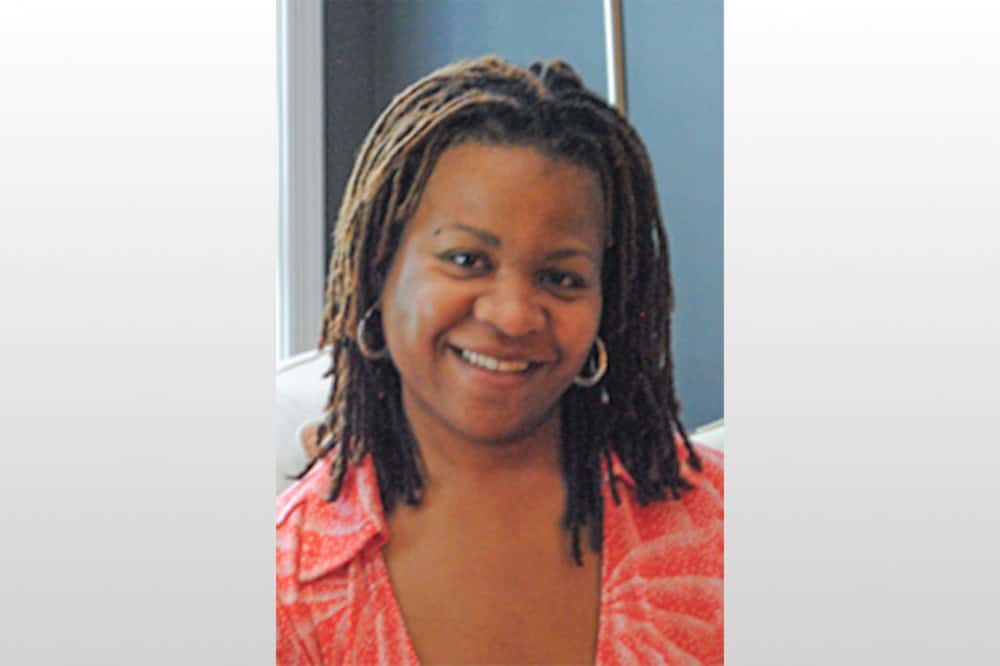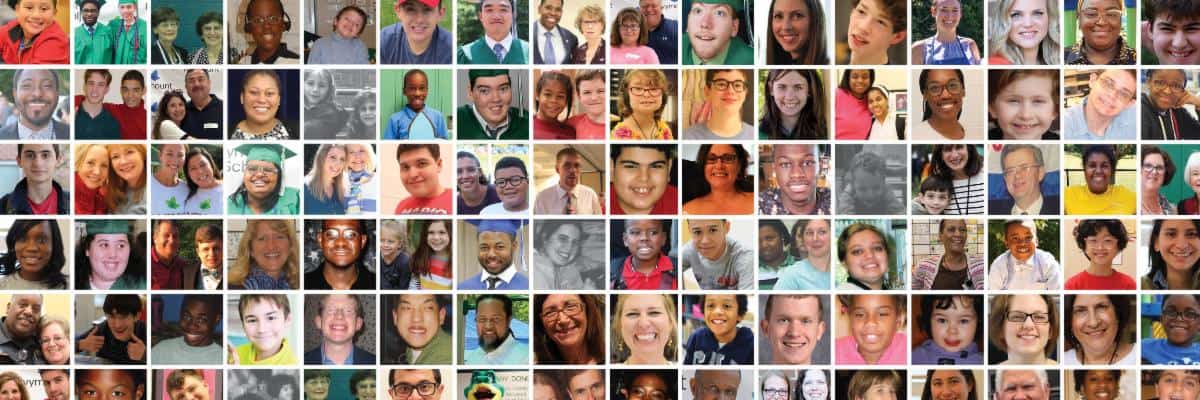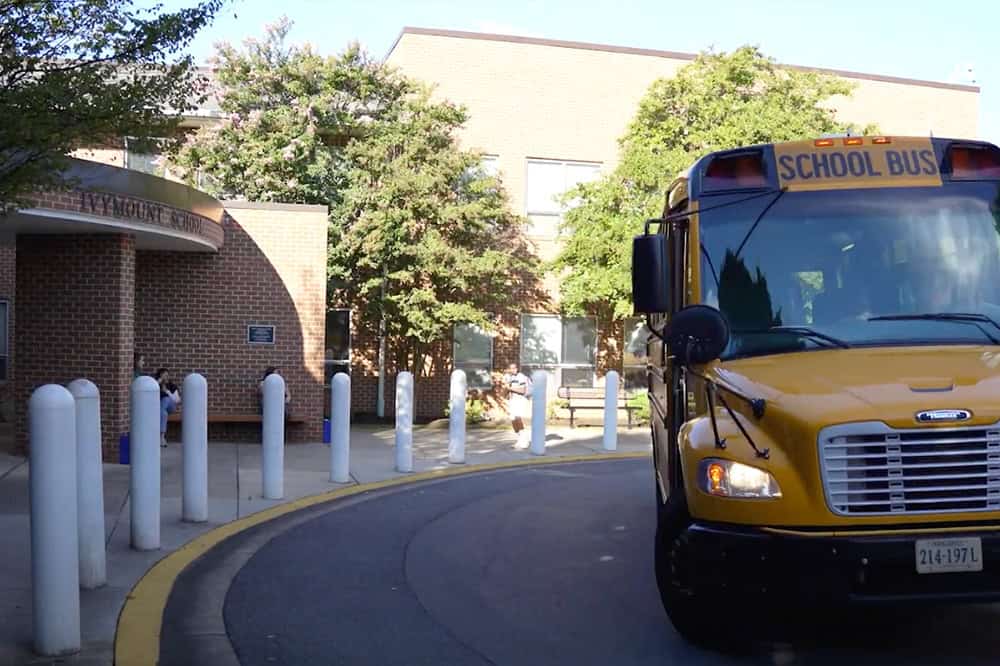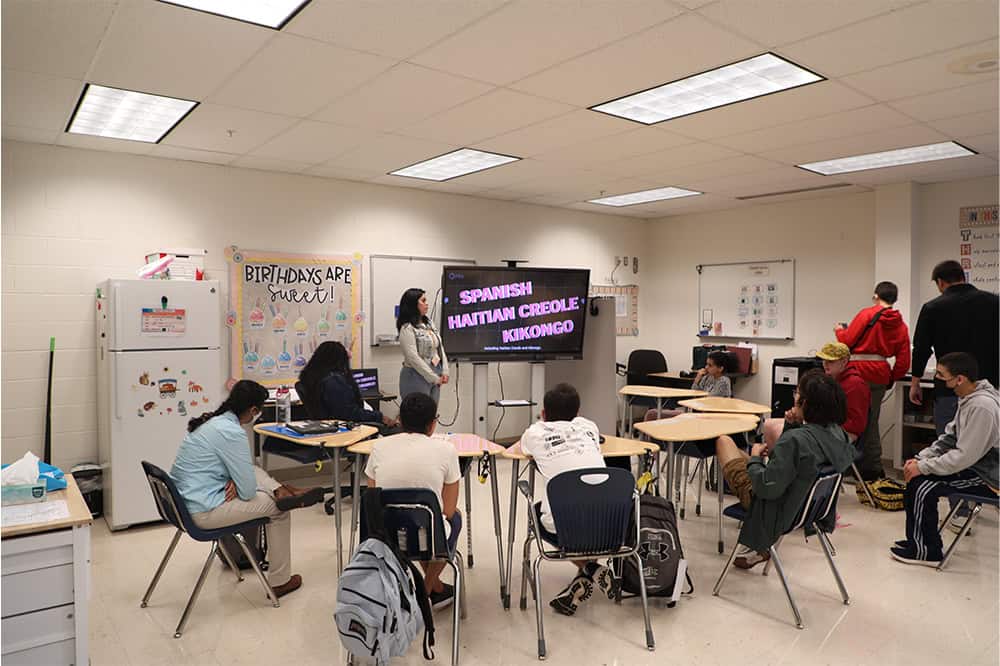Ivymount Transition Specialist Alyssa Yeager was recently chosen to also be the new MANSEF Transition Consultant and Chair of its Transition Advisory Committee. We caught up with Ms. Yeager, who has a master’s degree in Special Education and Transition and has also been a classroom teacher and program coordinator during her 15 years at Ivymount School. We asked her three questions about the importance of the Transition process for students, and what she will work on in her new role.
1. What should parents and caregivers know about the Transition process?
The transition process is something that takes place over several years, starting at approximately age 14, with the goal of preparing your student and you for graduation. While the idea of adult life can feel very overwhelming, the transition process gives you the opportunity to gather information and practice skills year by year. Small ways parents and caregivers can begin preparing their child for an independent life is to start giving responsibilities at home. You can start small (e.g., taking laundry to room, cleaning up toys) and eventually expand on those skills (e.g., washing and drying laundry, making bed, cleaning up room). There are also lots of ways to work on independent living and pre-vocational skills at home and at school. If you need more ideas or support getting things in place, reach out to your child’s school team and transition specialist. We are always happy to help!
2. What is MANSEF and what work does it do on behalf of Ivymount School?
The Maryland Association of Nonpublic Special Education Facilities (MANSEF) is a not-for-profit organization of 70 nonpublic special education facilities, such as Ivymount School, approved by the Maryland State Department of Education to provide quality services for children and youth with disabilities. MANSEF unites a diverse community of educators, related service professionals, and parent groups to advocate for the needed continuum of services for children and adolescents with disabilities.
3. What will you do in your role as consultant and Chair of the Transition Advisory Committee?
I’ll provide technical assistance and procedures to ensure that the input of local school systems and service providers is heard as we develop transition plans for students attending nonpublic special education schools. I will also prioritize increasing the transition knowledge base and sharing of best practices among professionals represented by MANSEF.
For parents and families interested in learning more about transition, click below for a few valuable resources:

